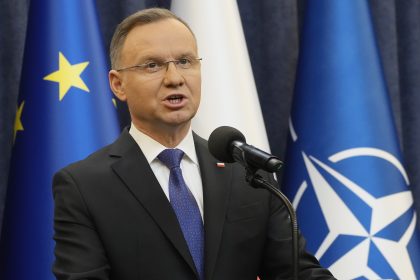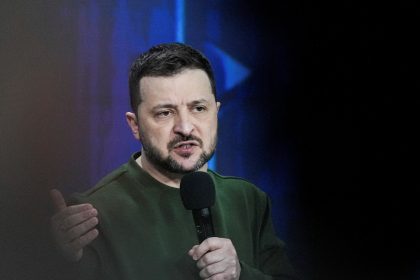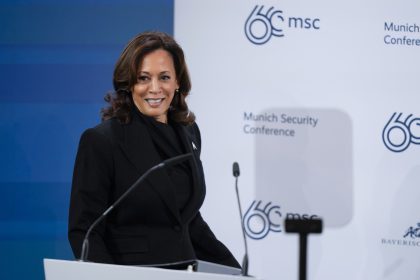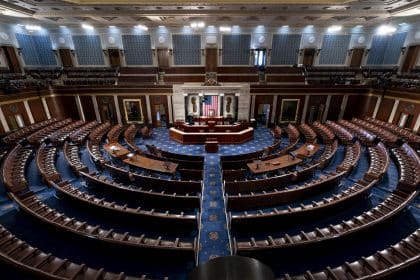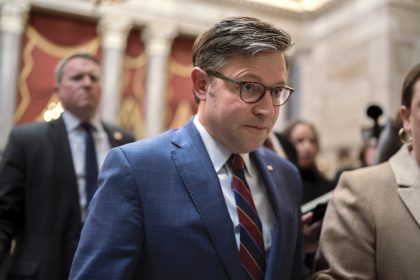Ukraine Invasion Could Influence Biden’s National Security Strategy
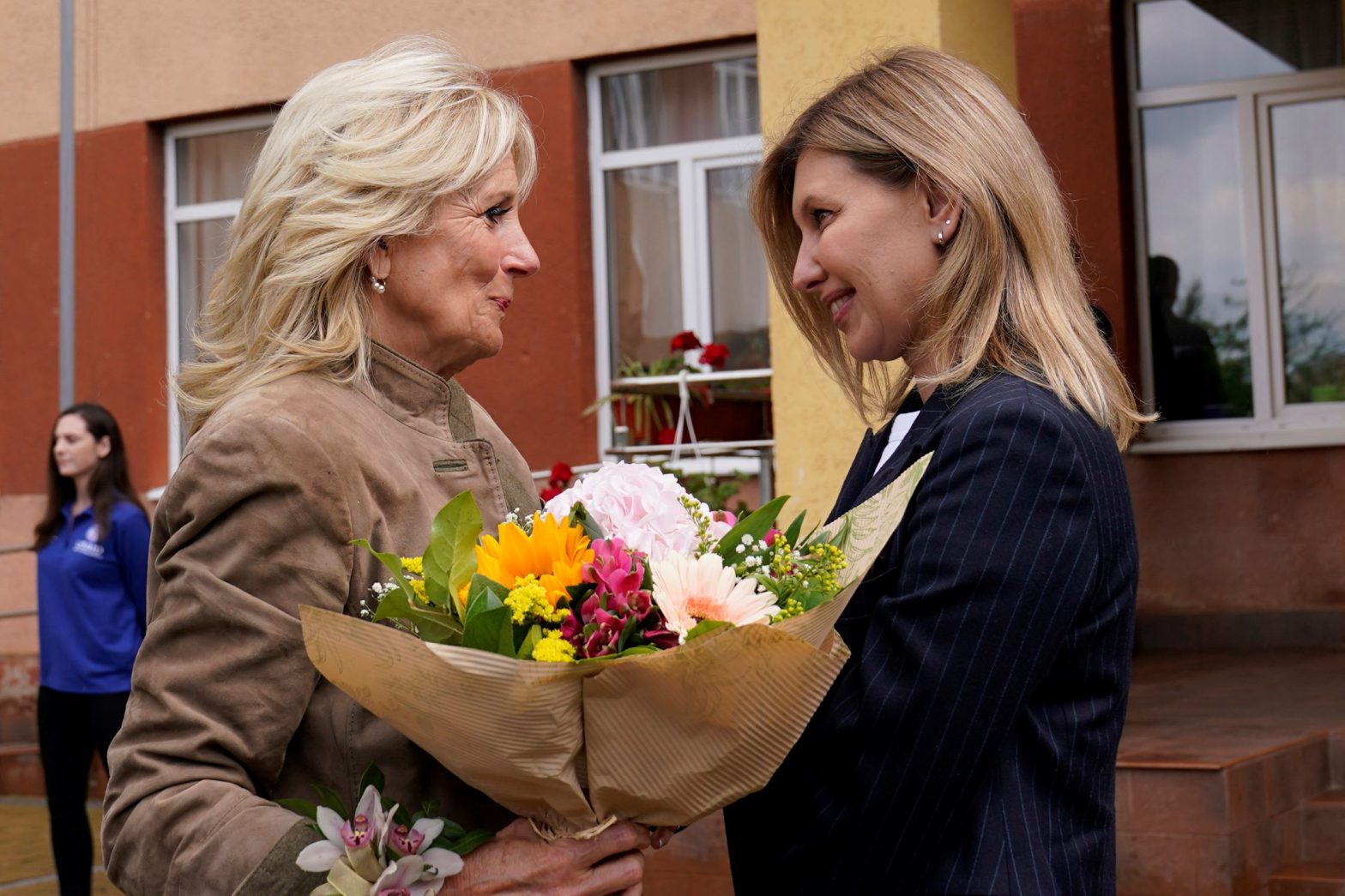
WASHINGTON — Foreign policy and defense experts think Russia’s invasion of Ukraine could complicate the Biden administration’s national security plans.
Classified versions of President Biden’s National Security Strategy, Nuclear Posture Review and National Defense Strategy were transmitted to Congress in late March, but the official release of the unclassified versions of those documents has been delayed by the war in Ukraine. Combined, submitting the three documents to Congress is an obligatory measure for any administration to signal the executive branch’s military intent and tactical objectives.
While it’s unknown just how much the Russian incursion into Ukraine will modify the Biden administration’s vision, experts from the Brookings Institution’s Center for Security, Strategy and Technology expect it to play some role in the national defense outlook. The options for Biden’s approach to national defense strategy were explored during a virtual discussion featuring two panels of foreign policy experts on Thursday.
“I do still think that the China threat is greater, and so I think my objection in terms of the narrowness of the NDS isn’t the orientation around China, per se, but rather in how we’re approaching that competition and how we’re addressing that threat,” Melanie Sisson, a Brookings fellow and consultant to the Department of Defense, said during the discussion.
“I think there’s no question that we are going to have to manage Russia, certainly in the near-term and over into the medium-term, and that’s going to require great care,” Sisson said. “But I think it’s going to require great care in the same ways that dealing with China will, which is thinking very carefully about how we are using the military as a tool to shape their behavior and being very intentional in designing those strategies and very disciplined in implementing them.”
The unclassified synopsis of the 2018 National Defense Strategy issued by the Trump administration asserts that China’s leveraging of “military modernization, influence operations, and predatory economics” is used to coerce neighboring countries in an all-of-nation long-term plan of action. The Trump administration’s NDS reasoned that China sought to displace the United States’ global preeminence by securing near-term regional hegemony in the Indo-Pacific through its military might.
The experts agreed that Biden’s NDS would likely prioritize China’s military capabilities as a greater concern than Russia’s. Caitlin Talmadge, associate professor of security studies at Georgetown University and Brookings nonresident senior fellow, said that Biden’s NDS considers China to be a greater long-term strategic threat than Russia.
“We don’t have the full document out yet but there are aspects of it that actually seem quite consistent with what we saw in 2018 from the Trump administration, and are in some ways more similar to that document than to what we saw in the Obama administration,” Talmadge said. “There’s a prioritization of China in both of those strategies but the language is a bit different [in that] the Biden administration has chosen to talk about China as a pacing threat, but there’s clearly an elevation of China over Russia.”
Moreover, the economic underpinnings of the two militaries are not on equal footing.
China’s gross domestic product stands at around $14.72 trillion while Russia’s GDP is $1.48 trillion, according to World Bank and International Monetary Fund data. Additionally, China spends an estimated $293 billion annually on its military while Russia spends an estimated $65.9 billion, The Well News previously reported.
When President Barack Obama delivered his first foreign policy speech during an April 2009 diplomatic trip to Prague, Czech Republic, he outlined an ambitious vision for a global ban on nuclear weapons and promised action on the issue. The Obama administration’s NPR adopted a modernization plan that rejected a “no first use” approach and instead retained the option to use nuclear weapons in response to non-nuclear aggression.
The philosophy of Obama’s NPR essentially carried over to Trump’s, which likewise characterized the U.S.’s nuclear arsenal as a means of deterrence and response — not for attack. Robert Einhorn, former special advisor to the State Department and Brookings senior fellow, said he expects Biden’s NPR to take a centrist approach to nuclear modernization when it is declassified and released.
“The Biden NPR … I think will really be seen as a mainstream document — traditional U.S. nuclear weapons policy,” Einhorn said. “It will avoid any major departures from [the previous] policy. The centrist nature of the document, I think, will displease advocates on both the left and the right. We’ve already seen progressives attack some elements of what they assumed to be the Biden NPR.”
Einhorn said he expects support from Congress for reinstating funds in the budget for the nuclear sea-launched cruise missile, developed under the Trump administration, as well as for the B83 variable-yield thermonuclear gravity bomb. The B83 has been the single most powerful weapon in the U.S.’s nuclear arsenal after the last B53 nuclear bomb was dismantled in 2011, according to Congressional Research Service data.
Because the U.S. will have both Russia and China’s nuclear arsenals to contend with and deter, Einhorn said an NPR calling for nuclear reductions will not sit well with the majority of the legislature.
“I think in the end the centrist Biden NPR will have sufficient support in Congress and [with] the American public, given today’s very threatening strategic environment with growing threats from Russia, China, and North Korea,” Einhorn said. “I don’t think there’s going to be much support for limiting U.S. nuclear capabilities and options. But on the other side, given concerns about triggering an expensive nuclear arms race leading to greater tensions and potential escalation — I don’t think it’s going to be much [easier to] stomach expanding existing nuclear weapons capabilities either.”
Reece can be reached at [email protected] and on Twitter at @ReeceNWrites


















